Click on the map to see Dentist jobs in regions or cities in New Zealand


Home › Dentistry jobs › Dentist Jobs in New Zealand
Click on the map to see Dentist jobs in regions or cities in New Zealand
What if you could change the way you work and live to pursue your dream of working as a dentist in New Zealand? You could find yourself a role where you could fulfil your clinical ambitions, earn the income you deserve and have the work life balance to enjoy this newfound freedom.
We have a number of dentist jobs available across different areas in New Zealand and useful resources to help you through the process of making the move. You can use our map above to search for dentist jobs in New Zealand quickly and easily.
If you would like to chat to one of the team about the options available you can call us on 01423 813 455 or send us an email for a no obligation chat on [email protected]
You may also be interested in our Complete Guide for Dentists Relocating to Australia.
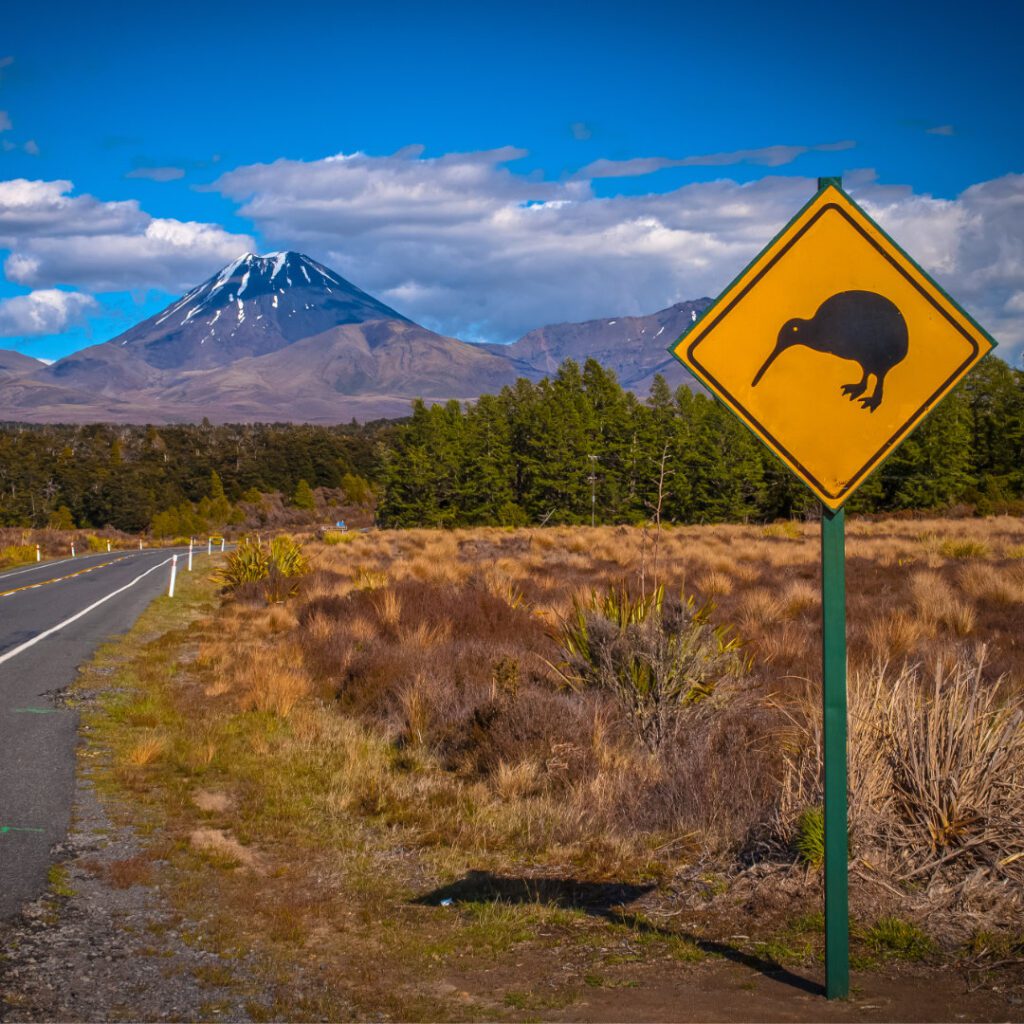
Waikato
West Coast
Manukau City
Waitakere
North Shore
Meet the team that will guide you through the process of relocating to your dream dentist job in New Zealand.
Director of Primary Care, Pharmacy, Optical & Audiology and Dental – UK, Australia, Canada & New Zealand
I have spent over 25 years working in healthcare recruitment spanning the primary care, pharmacy, optical & audiology, dental, veterinary, disability and education sectors. Currently focused on delivering ‘Total Workforce Solutions’, including permanent, locum, contract and contingent staffing to our partner clients across the UK, Australia, Canada and New Zealand….
Specialist Recruitment Consultant
As a dedicated Dental Recruitment Specialist I specialize in fostering professional growth and connecting passionate dental professionals with exciting career opportunities.
Whether you’re looking for guidance, support, or new roles within the dental field, you’ve come to the right place!
J664718 Otago
Otago NZD130K
- NZD180K / Year
Shape future smiles in the beautiful New Zealand - join the team in Otago as a Dental Clinical Educator and enjoy an unbeatable Dunedin lifestyle! Are you an e...
Read moreJ635418 Oamaru
Otago NZD130K
- NZD250K / Year
Incredible Dentist Position Available in Oamaru, New Zealand's Scenic South Island Join a Thriving Practice with Fantastic Growth Potential! Are you an experi...
Read moreJ628594 Palmerston North
Manawatu-Wanganui NZD120K
- NZD250K / Year
Exciting Dentist Opportunity in Palmerston North, New Zealand Great Practice, Great Potential! Our client, a major force in the dental sector and one of the l...
Read moreJ489750 Te Puke
Bay of Plenty NZD150K
- NZD250K / Year
Ready for a new adventure in your dental career? Join the team in the beautiful coastal town of Tauranga in the picturesque Bay of Plenty and start a new career...
Read moreJ488304 Miramar
Wellington NZD150K
- NZD300K / Year
Ready for a new adventure in your dental career? Join the team in the vibrant, coastal town of Miramar in Wellington and start a new career in the perfect locat...
Read moreJ466058 Tauranga
Bay of Plenty NZD130K
- NZD250K / Year
Ready for a new adventure in your dental career? Join the team in the beautiful coastal area of Taranga and start a new career in the perfect location! Are you...
Read moreJ466053 Whanganui
Manawatu-Wanganui NZD130K
- NZD250K / Year
Dentists looking for your next career opportunity in New Zealand? Whanganui renowned for its stunning landscapes and thriving dental industry, offers the ideal ...
Read moreJ466060 Invercargill
Southland NZD130K
- NZD250K / Year
Dentists-looking to take your career to new heights in New Zealand? Head south to Invercargill, where stunning landscapes meet an exceptional quality of life-th...
Read moreMany UK dentists are making the move to New Zealand, attracted by the promise of a better work-life balance, excellent career opportunities, and a sunnier lifestyle.
With a strong demand for skilled dental professionals across New Zealand, UK-qualified dentists often find the relocation process smooth and rewarding. In this guide, we’ll cover everything you need to know about starting your dental career down under.
One of New Zealand’s greatest attractions is its breathtaking natural beauty. From dramatic coastlines to lush native forests and soaring mountain ranges, the country offers endless outdoor adventures.
Beaches: New Zealand is renowned for its stunning beaches, from the golden sands of Kaiteriteri and the surf breaks of Piha, to the remote beauty of Cathedral Cove. Whether you’re into surfing, kayaking, or simply relaxing by the sea, New Zealand’s coastline is a true paradise.
National Parks and Wildlife: New Zealand’s unique ecosystems are home to extraordinary wildlife such as the kiwi, fur seals, and rare native birds. National parks like Fiordland, Tongariro, and Abel Tasman offer incredible opportunities for hiking, camping, and immersing yourself in nature’s wonders.

Outdoor Sports and Lifestyle: With its varied landscapes and temperate climate, outdoor living is a big part of life in New Zealand. From rugby and cricket to hiking, mountain biking, skiing, and water sports, there’s something for every sports enthusiast and nature lover.
New Zealand remains a top choice for expats, offering a high quality of life, excellent work opportunities, and a stunning natural environment. If you’re thinking about relocating, New Zealand could be the ideal destination for you and your family.
New Zealand is consistently ranked as one of the best countries in the world for quality of life. Several key factors contribute to its strong global reputation:
Excellent Healthcare and Education: New Zealand’s public services are well-developed, offering residents access to high-quality healthcare and a strong education system (with more details to follow).
Economic Strength and Stability: With a stable, resilient economy, New Zealand provides a secure environment with solid job opportunities and financial stability for individuals and families alike.
Emphasis on Work-Life Balance: New Zealand’s work culture places a strong emphasis on maintaining a healthy work-life balance. Fair wages, flexible working arrangements, and generous leave entitlements support a more relaxed and fulfilling lifestyle.
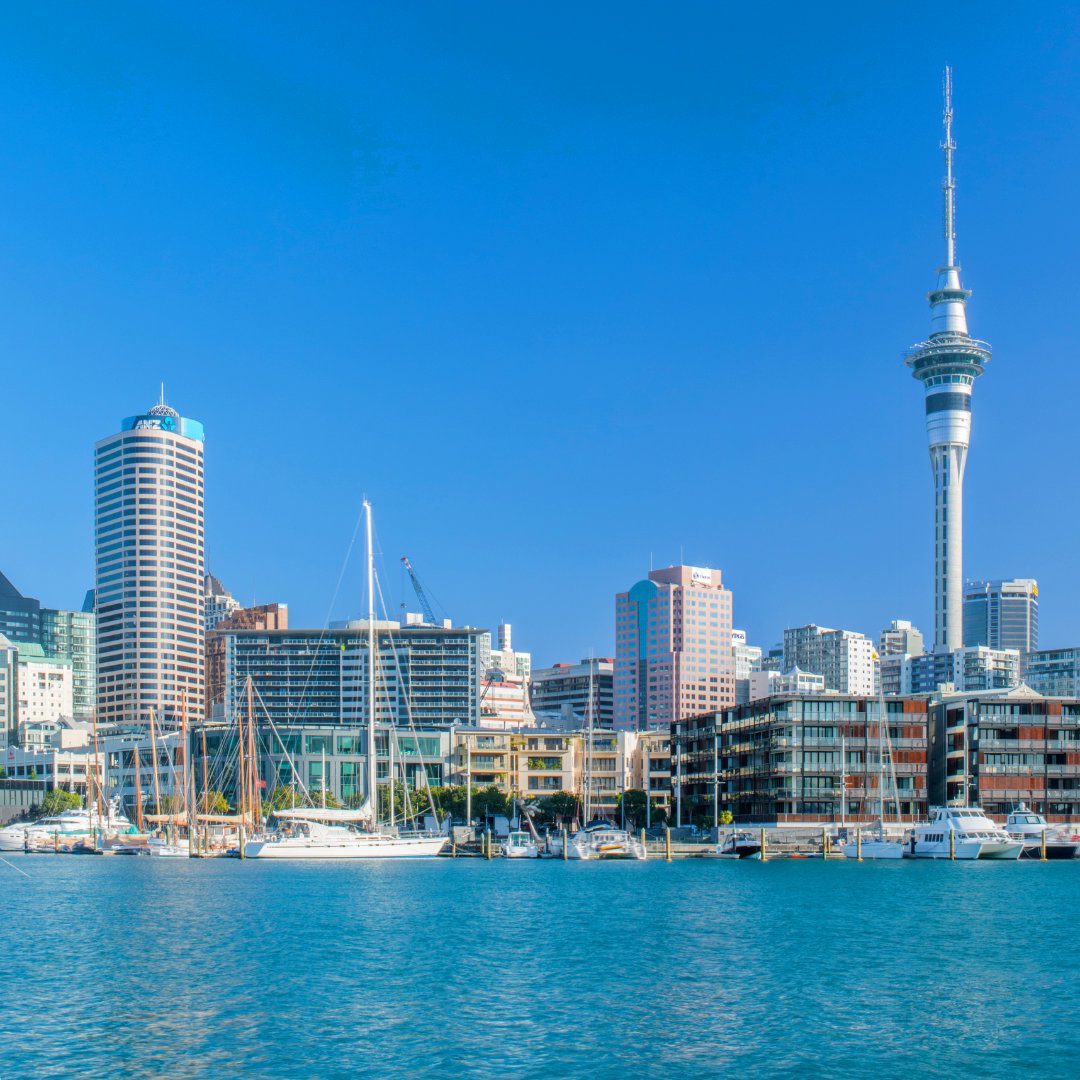
World-Class Cities: New Zealand cities such as Auckland, Wellington, Christchurch, Queenstown, and Dunedin are known for their excellent infrastructure, rich cultural life, and high standard of living. Many are celebrated for their livability, combining urban convenience with easy access to nature.
New Zealand’s diverse climates make it an attractive destination for those considering relocation. Despite its relatively compact size, the country spans a variety of climate zones—from subtropical warmth in the north to alpine cold in the mountains—offering something for everyone.
In the far north, regions like Northland and Auckland enjoy a subtropical climate with warm temperatures and high humidity—perfect for beach lovers and outdoor adventurers.
In contrast, the South Island offers temperate and alpine conditions, with four distinct seasons, crisp winters, and snow-capped peaks. Coastal cities like Wellington and Christchurch experience milder climates, blending moderate temperatures with a relaxed lifestyle.
With such a wide range of weather conditions, New Zealand suits many lifestyles and personal preferences.
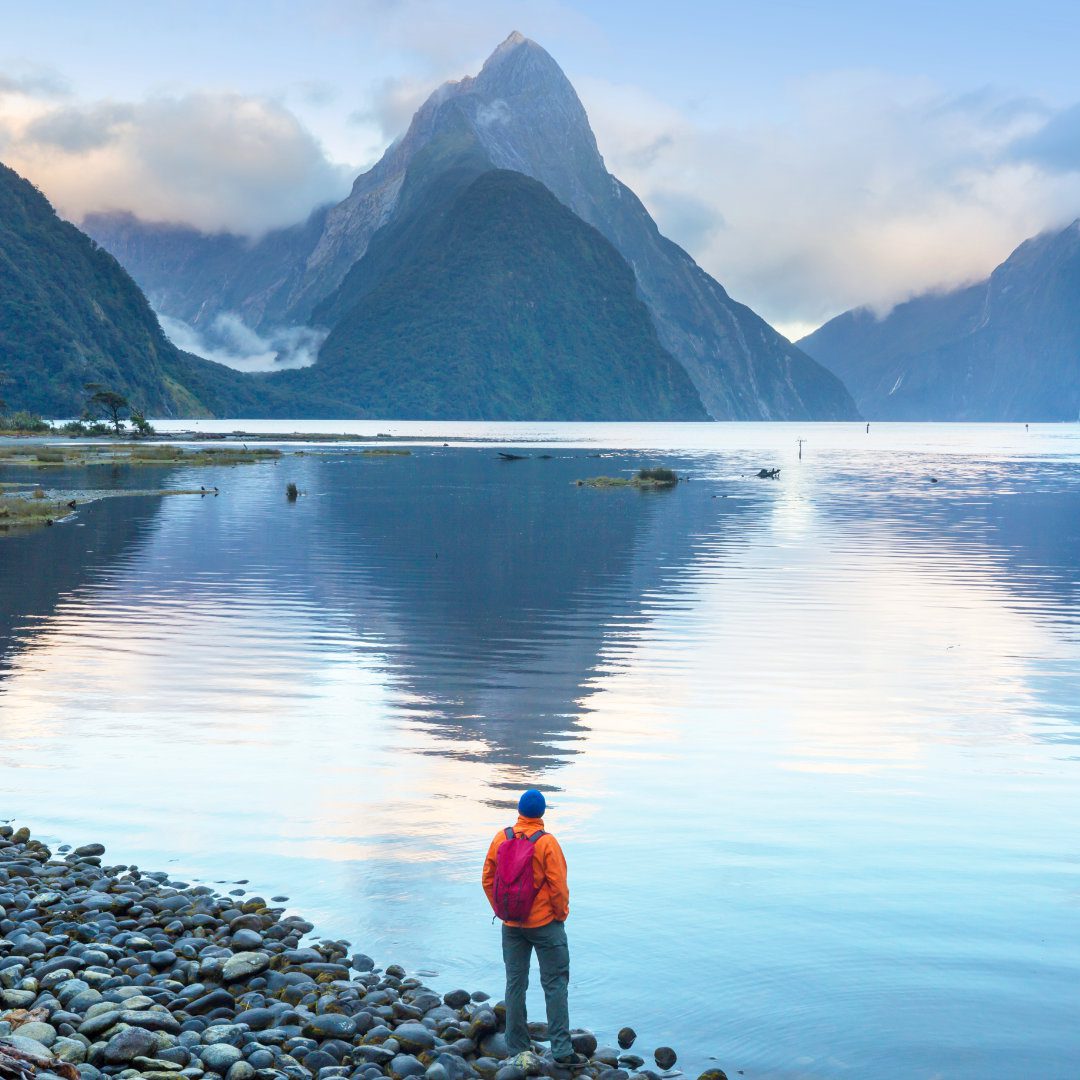
Regions: Northland, Auckland, parts of the Bay of Plenty
Regions: Waikato, Taranaki, Hawke’s Bay, Wellington
Regions: Nelson, Marlborough, parts of Canterbury
Regions: Christchurch, Otago, Southland
Regions: Southern Alps, Central Otago, Fiordland, parts of Canterbury and West Coast
Regions: West Coast of the South Island (e.g., Greymouth, Hokitika)
New Zealand’s diverse climates, paired with its incredible natural scenery, make it a uniquely appealing place to live. Whether you prefer sunny beaches, alpine peaks, or temperate city living, you’ll find a climate—and lifestyle—that suits you.
New Zealand’s varied climate allows for outdoor adventures in every season. In the subtropical north, including regions like Northland and Auckland, warm temperatures make swimming, surfing, and boating popular year-round. Iconic coastal spots such as the Bay of Islands and Piha Beach offer ideal conditions for water sports and seaside relaxation.
In the temperate and alpine regions of the South Island, cooler months bring perfect conditions for hiking, mountain biking, and skiing. National parks like Tongariro, Fiordland, and Aoraki/Mount Cook offer breathtaking landscapes—ranging from ancient rainforests to snow-capped peaks. Even in winter, the scenery invites exploration, whether you’re trekking through forests or enjoying scenic drives and hot springs.
Thanks to its diverse climate and stunning natural environment, New Zealand supports an active, outdoor lifestyle that enhances physical health and mental well-being.
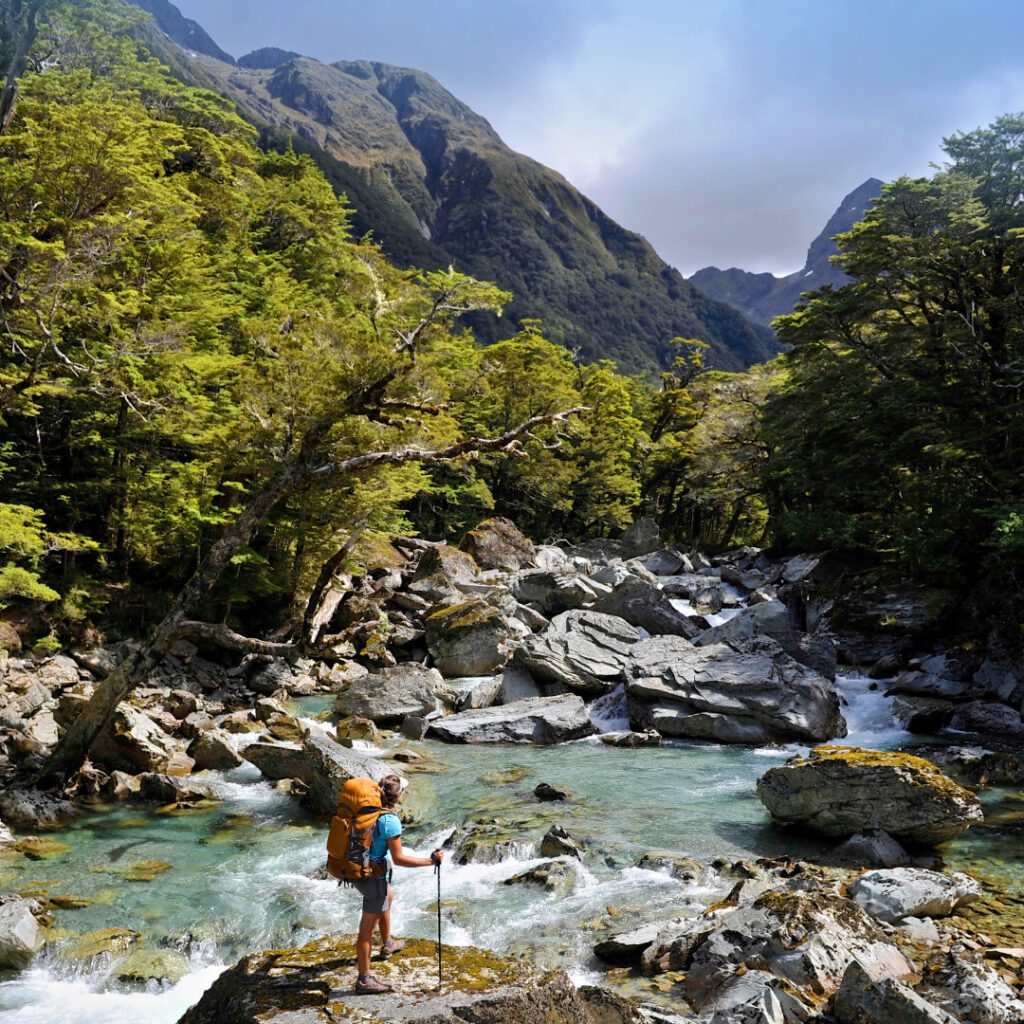
New Zealand’s clean air, low population density, and strong outdoor culture make it an excellent place for maintaining a healthy lifestyle. Coastal cities like Auckland, Tauranga, and Nelson enjoy mild, sunny climates that encourage year-round physical activity—from beach walks and swimming to hiking and cycling.
Access to fresh, locally sourced produce—including world-class seafood, seasonal fruits, and vegetables—supports a nutritious and balanced diet. Regions like Marlborough and Central Otago are known for their pure water, clean air, and thriving local food scenes, making them especially attractive for those who prioritise health and well-being.
New Zealand’s dramatic and varied landscapes are shaped by its diverse climate zones. In the north, you’ll find lush forests, geothermal wonders, and golden beaches. The South Island features majestic fjords, towering mountains, and serene lakes.
The country’s biodiversity is equally impressive. Native species such as the kiwi, tuatara, and kea are found nowhere else in the world, while marine life thrives along New Zealand’s extensive coastline. National parks and conservation areas offer countless opportunities to explore pristine ecosystems and experience nature firsthand.
For those who enjoy clear seasonal distinctions, New Zealand offers everything from long, sunny summers to crisp, scenic winters. Cities like Christchurch, Dunedin, and Wellington provide well-defined seasons, allowing residents to enjoy both summer beach days and winter escapes to nearby ski fields.
Meanwhile, areas such as Nelson and Hawke’s Bay benefit from high sunshine hours and a stable, Mediterranean-like climate—ideal for those who prefer consistently pleasant weather year-round.
If you’re a dentist considering a move to New Zealand, the country’s diverse climate and natural beauty make it a truly compelling destination. Whether you’re looking for year-round outdoor living, a health-conscious community, or the chance to explore some of the world’s most stunning landscapes, New Zealand delivers.
From vibrant coastal cities to peaceful countryside retreats, the range of environments allows you to find the perfect lifestyle fit. With its strong emphasis on health, well-being, and work-life balance, New Zealand offers the ideal setting for both personal fulfilment and professional growth.
The cost of living in New Zealand can vary widely depending on the city or region, your lifestyle, and personal spending habits. On average, New Zealand is moderately expensive compared to many other countries, with urban centers like Auckland and Wellington having higher living costs than regional towns or rural areas. Below is a breakdown of key expenses and factors influencing the cost of living in New Zealand:
Housing is often the most significant expense for people relocating to New Zealand. Rental and property prices vary considerably based on location, proximity to city centers, and the type of accommodation.
Auckland is New Zealand’s most expensive city for housing. Renting a one-bedroom apartment in the city center can cost around NZD 2,500 per month, while in the suburbs, rent is typically lower—averaging around NZD 1,800 per month. Wellington and Queenstown also have higher-than-average housing costs due to demand and limited supply. Regional towns and smaller cities like Dunedin or Palmerston North generally offer more affordable options.

Cities like Wellington and Christchurch offer slightly lower housing costs than Auckland, with one-bedroom apartments in the city center averaging around NZD 2,000 to NZD 2,400 per month, and properties outside the center typically renting for around NZD 1,600 to NZD 2,000.
More affordable options can be found in cities like Hamilton, Dunedin, and Palmerston North, where average monthly rents for central apartments tend to range between NZD 1,400 and NZD 1,800.
If you’re considering buying property, Auckland and Queenstown are among the most expensive areas, with median house prices often exceeding NZD 1 million. However, smaller cities and regional areas generally offer better value, with house prices ranging from NZD 600,000 to NZD 850,000, depending on the region and property type.
Utility expenses in New Zealand are generally stable across most urban and regional areas, though costs may vary depending on the local climate, house size, insulation quality, and energy use.
Grocery expenses in New Zealand vary depending on your dietary preferences, shopping habits, and whether you choose local or imported products. On average, a single person can expect to spend between NZD 400 and NZD 700 per month on groceries. A family of four may spend between NZD 900 and NZD 1,400 per month, depending on location and food choices.
When dining out:

New Zealand offers a publicly funded healthcare system through ACC (Accident Compensation Corporation) and District Health Boards, providing free or heavily subsidized medical care for residents and citizens. General practitioner (GP) visits, hospital care, and emergency services are often low-cost or free for eligible patients, though some fees may apply depending on the provider and location.

Education costs in New Zealand vary depending on whether your children attend public or private schools and whether you are a domestic or international family.
In addition to education, childcare is an important consideration for families:

Public transportation in New Zealand’s major cities is reliable and widely used, though car ownership remains common, especially in suburban and rural areas. Costs vary depending on your preferred mode of travel and location.
Car ownership expenses in New Zealand include fuel, insurance, registration (known as Warrant of Fitness and registration fees), and maintenance.
Fuel prices usually range from NZD 2.40 to NZD 2.80 per liter.
Insurance and registration costs generally range from NZD 900 to NZD 1,400 per year, depending on the vehicle type and coverage.

New Zealand offers a wide range of entertainment and leisure activities, though these can add to your monthly budget depending on your lifestyle choices.

New Zealand can be a relatively expensive country to live in, particularly in major cities like Auckland and Wellington.
However, the cost of living varies significantly depending on your lifestyle, housing choices, and location.
With its high standard of living, access to quality healthcare, education, and a strong focus on work-life balance, New Zealand offers great value and a rewarding lifestyle for many residents despite the higher costs.
New Zealand is celebrated for its inclusive and multicultural society, making it a friendly and inviting destination for migrants:

New Zealand is consistently ranked as one of the safest countries in the world, with low crime rates providing a secure environment for families and individuals alike.
Political Stability: New Zealand has a strong, democratic political system known for its transparency, rule of law, and stability. Residents benefit from robust legal protections and freedoms. The country also maintains a well-regulated financial and business environment, making it an appealing destination for entrepreneurs, investors, and those seeking long-term security.
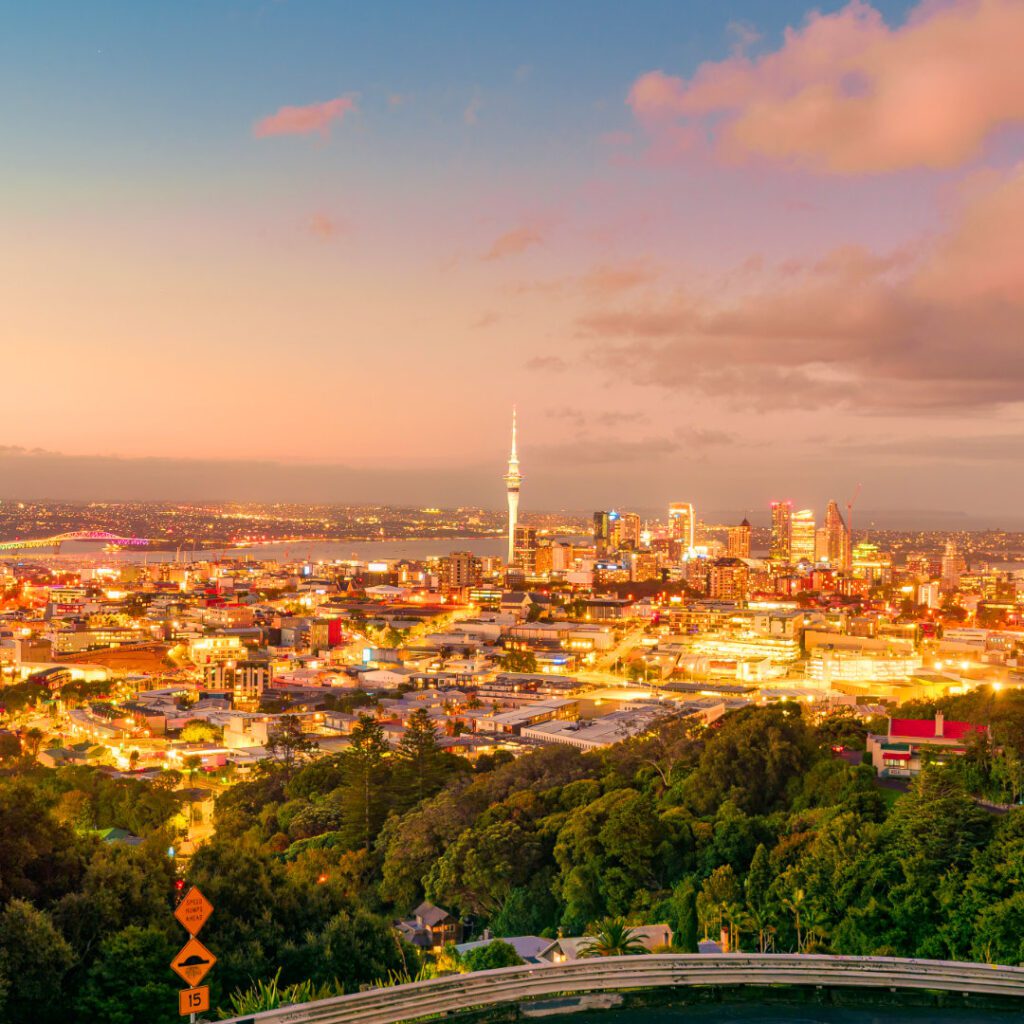
If you’re considering relocating to New Zealand as a dentist, you can be confident that your family will have access to an excellent education system, consistently ranked among the best globally.
Whether moving with children or pursuing further study yourself, New Zealand offers a wide range of educational opportunities:
New Zealand provides a strong education system with both public and private school options. Public schools are generally free for residents and offer a high standard of education, while private schools often provide specialized programs and smaller class sizes for families who prefer that choice.
New Zealand is home to several prestigious universities, including the University of Auckland, University of Otago, Victoria University of Wellington, and University of Canterbury. These institutions attract international students and offer world-class programs in health sciences, including dentistry, making New Zealand an excellent destination for professional and academic growth.

The dental market in New Zealand is a dynamic and growing sector, fueled by increasing demand for dental care, ongoing advancements in dental technology, and a strong public focus on oral health. New Zealanders are proactive about maintaining their dental wellbeing, creating steady demand for a range of dental treatments, preventive services, and specialist care.
Here’s an overview of the key aspects of the dental market in New Zealand:
The New Zealand dental industry is showing consistent growth, with the market valued at approximately NZD 1.2 billion in 2024 and expected to expand further in the coming years. This growth is supported by rising demand for essential dental services as well as cosmetic dentistry, reflecting New Zealanders’ increasing awareness and investment in oral health maintenance.

New Zealand’s dental market growth is driven by several important factors, including an aging population that requires more restorative work and implant procedures, along with increased public awareness of the importance of oral health and preventive care. Technological advancements—such as digital dentistry, 3D printing, and improved imaging techniques—are enhancing patient outcomes and fueling demand for cutting-edge dental services.
For dentists considering relocation to New Zealand, the expanding market offers numerous opportunities, especially in specialized fields like orthodontics, periodontics, and cosmetic dentistry. The combination of a growing patient base and innovative technology makes New Zealand’s dental industry an exciting and dynamic place for career development.
The New Zealand dental industry is evolving rapidly, shaped by new technologies, shifting patient expectations, and a stronger emphasis on accessibility and prevention.
Technological Advancements
The integration of advanced technology—such as 3D printing, laser dentistry, and AI-supported diagnostics—is revolutionizing treatment precision, shortening recovery times, and enhancing patient experiences. AI is also streamlining administrative workflows, increasing practice efficiency.
Tele-Dentistry
Tele-dentistry is gaining traction in New Zealand, providing remote consultations especially valuable for patients in rural or hard-to-reach areas. This approach offers a convenient, accessible way for patients to receive expert advice and follow-up care without travel.
Patient-Centered Care
There is a growing focus on personalized treatment plans, with dentists tailoring care to each patient’s unique needs. This collaborative approach increases patient satisfaction and improves overall treatment outcomes.
Preventive Care
Preventive dentistry continues to be a cornerstone of the industry, with greater emphasis on early intervention and oral hygiene education to reduce the need for invasive treatments down the line.
Sustainability
Sustainability is an increasing priority, with many dental practices adopting eco-friendly materials and waste reduction strategies. This commitment resonates with environmentally conscious patients and supports New Zealand’s broader sustainability goals.
New Zealand’s dental industry is robust and expanding, propelled by growing oral health awareness, technological innovation, and demographic shifts demanding specialized care. Although challenges such as workforce shortages and operational costs exist, the market offers substantial opportunities—particularly in cosmetic dentistry, orthodontics, and advanced treatment areas. The focus on preventive care and adoption of new dental technologies make New Zealand a promising environment for dental professionals seeking growth and innovation in their careers.
Dentists in New Zealand earn competitive salaries, with income levels influenced by factors such as years of experience, practice location, and whether they work in private clinics, public health services, or corporate dental groups. While general dentists typically earn less than specialists, there is strong earning potential across all career stages.
Salary by Experience Level
Entry-Level Dentists: Newly graduated dentists can expect to earn between NZD 70,000 and NZD 100,000 per year, depending on location and employment setting.
Mid-Level Dentists: With a few years of experience, dentists typically see their earnings rise to between NZD 100,000 and NZD 140,000 annually.
Senior-Level General Dentists: Experienced dentists—especially those who own or partner in a practice—can earn NZD 140,000 or more, with some exceeding NZD 180,000, depending on their business acumen, patient base, and regional demand.
Dental Specialists: Dental specialists in New Zealand generally earn significantly more than general dentists due to their advanced training and limited supply. Salaries for specialists often start above NZD 200,000, with many earning considerably more.

In New Zealand, dentists often find that earning potential can be higher in regional towns compared to metropolitan cities, due to several key factors:
1. Higher Demand in Regional Areas
2. Incentives and Benefits
Government and private employers may offer financial incentives to attract dentists to underserved regions, such as relocation assistance, bonuses, or student loan repayment schemes.
3. Lower Operating Costs
Practice overheads, including rent and staffing, tend to be lower in regional areas, allowing dentists who own practices to enjoy better profit margins.
4. Work Volume
Dentists in regional towns often have larger patient loads, which can boost earnings, especially for those paid per patient or per procedure.
5. Metro City Limitations
In larger cities like Auckland or Wellington, competition among dentists is more intense, especially in affluent suburbs, which can impact income.
Example Salary Ranges (approximate):
Regional dentist: NZD 120,000 – 220,000+ per year
Metro dentist: NZD 90,000 – 160,000 per year (varies widely)
Private Practice: Most dentists in New Zealand work in private clinics, either as associates or practice owners. Earnings tend to be higher here, especially for those who offer specialized or cosmetic services.
Public Sector: Dentists employed in District Health Boards or community clinics usually earn slightly less—typically NZD 70,000 to NZD 110,000—but benefit from greater job stability, regular hours, and opportunities to serve underserved communities.
Academic Roles: Dentists working at universities or research institutions usually earn salaries comparable to the public sector, with added benefits such as teaching responsibilities, research grants, and flexible schedules.
The demand for dentists in New Zealand remains steady, driven by:
Increased Oral Health Awareness: More New Zealanders are seeking preventive and cosmetic dental care, boosting patient volumes.
Advances in Technology: Digital dentistry, same-day crowns, and minimally invasive treatments are expanding what dentists can offer, increasing revenue potential.
Geographic Disparities: While urban centers have strong competition, rural and provincial areas face shortages, offering excellent opportunities for higher earnings and career growth.
Benefits for Dentists
Continuing Education: Many dentists pursue advanced training in areas such as implants, orthodontics, or sleep dentistry, enhancing both expertise and income.
Practice Ownership: Owning a practice allows dentists greater control over finances and work-life balance.
Flexible Working Hours: Particularly in private practice, dentists can often tailor their schedules to fit personal needs.
With increasing demand, technological innovation, and opportunities across urban and rural areas, dentists in New Zealand are well-positioned for long-term career success, whether as associates, public sector providers, or practice owners.
New Zealand offers clear and accessible pathways to permanent residency and citizenship for dental practitioners, making it an attractive destination for skilled professionals, business owners, and those with family ties in the country:
Skilled Migration Programs: Dentists are included on New Zealand’s skilled occupation lists, enabling them to apply through the Skilled Migrant Category (SMC) visa. This points-based system assesses applicants based on factors like age, English language ability, qualifications, work experience, and job offers in high-demand occupations.
Permanent Residency: Obtaining permanent residency (PR) in New Zealand provides access to essential benefits such as public healthcare, education, and social services. PR status offers security for long-term career planning and family settlement.
Citizenship: After fulfilling residency requirements, permanent residents can apply for New Zealand citizenship. Citizenship confers additional rights including voting in elections and holding a New Zealand passport.

I would like to personally thank Prospect Health for everything thus far providing an excellent service in making my move…
Talk to our expert recruitment team on
01423 813 451 or email us at [email protected]
Displaying 1 to 12 of 12 jobs.
J664718 Otago
Otago NZD130K
- NZD180K / Year
Shape future smiles in the beautiful New Zealand - join the team in Otago as a Dental Clinical Educator and enjoy an unbeatable Dunedin lifestyle! Are you an e...
Read moreJ635418 Oamaru
Otago NZD130K
- NZD250K / Year
Incredible Dentist Position Available in Oamaru, New Zealand's Scenic South Island Join a Thriving Practice with Fantastic Growth Potential! Are you an experi...
Read moreJ628594 Palmerston North
Manawatu-Wanganui NZD120K
- NZD250K / Year
Exciting Dentist Opportunity in Palmerston North, New Zealand Great Practice, Great Potential! Our client, a major force in the dental sector and one of the l...
Read moreJ489750 Te Puke
Bay of Plenty NZD150K
- NZD250K / Year
Ready for a new adventure in your dental career? Join the team in the beautiful coastal town of Tauranga in the picturesque Bay of Plenty and start a new career...
Read moreJ488304 Miramar
Wellington NZD150K
- NZD300K / Year
Ready for a new adventure in your dental career? Join the team in the vibrant, coastal town of Miramar in Wellington and start a new career in the perfect locat...
Read moreJ466058 Tauranga
Bay of Plenty NZD130K
- NZD250K / Year
Ready for a new adventure in your dental career? Join the team in the beautiful coastal area of Taranga and start a new career in the perfect location! Are you...
Read moreJ466053 Whanganui
Manawatu-Wanganui NZD130K
- NZD250K / Year
Dentists looking for your next career opportunity in New Zealand? Whanganui renowned for its stunning landscapes and thriving dental industry, offers the ideal ...
Read moreJ466060 Invercargill
Southland NZD130K
- NZD250K / Year
Dentists-looking to take your career to new heights in New Zealand? Head south to Invercargill, where stunning landscapes meet an exceptional quality of life-th...
Read moreJ466057 Whangarei
Northland NZD130K
- NZD250K / Year
Dentists, ready for your next career move in New Zealand? Discover Whangarei-famous for its breathtaking scenery and unbeatable lifestyle-the perfect place to g...
Read moreJ466307 Palmerston North
Manawatu-Wanganui NZD130K
- NZD250K / Year
Looking to elevate your career while enjoying a work-life balance? Want to explore all the opportunities New Zealand has to offer? Apply today and join the team...
Read moreJ466056 F E I L D I N G
Manawatu-Wanganui NZD130K
- NZD250K / Year
Experienced Dentist? Are you seeking a change of scenery while maintaining a healthy work-life balance? Join a forward-thinking dental team in the beautiful and...
Read moreJ411082 Palmerston North
Manawatu-Wanganui NZD150K
- NZD250K / Year
Looking to elevate your career while enjoying a work-life balance? Want to explore all the opportunities New Zealand has to offer? Apply today and join the team...
Read moreYou can call us at 01423 813451 or email us: [email protected]

Our experienced agents are waiting to help you achieve your dream career as a Dentist in New Zealand.